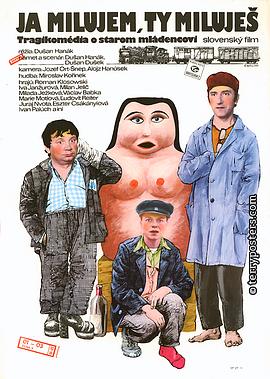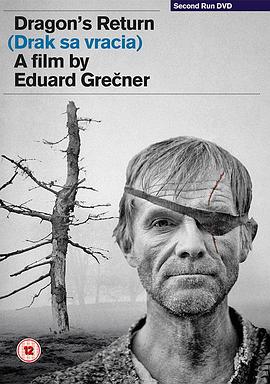主演的影片
1989
电影
/
剧情片
其它
1980年的这部影片对准了一群铁路邮差,主角是当中一名其貌不扬、求爱处处碰壁的EVRYDAY,大伙儿想尽办法帮他出主义,心上人偏偏跟帮他出主意的帅小子搞在一起,只等佳人被搞大肚子之后,才轮到他来疗伤谈心,这部爱情喜剧,展现了哈那克在档案癖好之幽默风趣的一面,严肃导演也能拍爱情电影,能令人笑中带泪地体会卑微小人物生活的甘苦,也对俊男美女只重视表面的爱情功夫作了一翻嘲讽。此片历劫十年,在解禁之后哈那克以此片夺下1989年柏林影展的最佳导演奖。
已完结
1968
电影
/
剧情片
其它
Andrej Mojzis
Ivan Macho
Jan Pelech
Jela Buckova
Jozef Cierny
Ján Mildner
Milan Mach
Pavel Chrobak
卢多维特·赖特尔
古斯塔夫·瓦拉赫
威廉·波洛尼
拉多万·卢卡夫斯基
斯特凡·克维季克
米库拉斯·洛迪津斯凯
艾米丽娅·瓦萨约娃
与Stefan Uher和Elo Havatta一样,Eduard Grecner也是60年代斯洛伐克新浪潮电影的缔造者之一。他的三部影片《一周七天》(1964)《尼绒月亮》(1965)和这部《徳拉克的回归》都是斯洛伐克新浪潮电影的代表作。这部叙事方法独特带有明显意识流风格的黑白影片甚至间接影响到了后来法国导演格里耶在捷克拍摄的两部影片《说谎的人》和《Eden and After》。 A special place in the development of feature films is reserved for Eduard Grecner, the creator of just one good film, Dragon Returns (Drak sa vracia, 1967), titled after the nickname of the lead character. After his initial work with Uher, Grecner made his mark as a proponent of the so-called intellectual film, the antithesis of the sociologically, or rather, socially critical film. Grecner's great role model was Alan Resnais, a young French filmmaker who sought to introduce Slovakia to the idea of film as a labyrinth in which meanings are created not by stories, but by complex configurations of dialogue, shots, and various layers of time, thus differentiating film from both literature and theater. In Dragon Returns―the story of a solitary hero who is needed by villagers living far in the mountains, but who is rejected by them at the same time because of his detachment―Grecner brought the tradition of lyricized prose to life through a whole series of formal aesthetic techniques. Alain Robbe-Grillet immediately developed this idea in the film shot in Bratislava The Man Who Lies (Slovak Muz, ktory luze; French title L'homme qui ment; 1968), and perfected it in Eden and After (Eden a potom, 1970).
已完结



